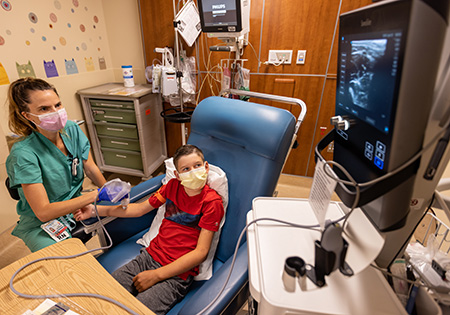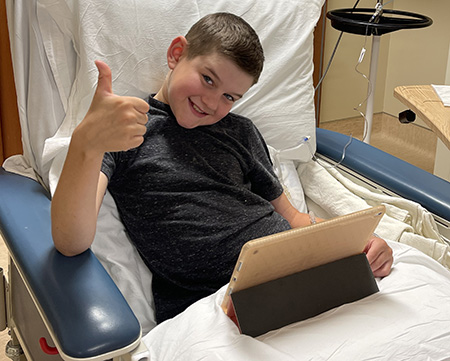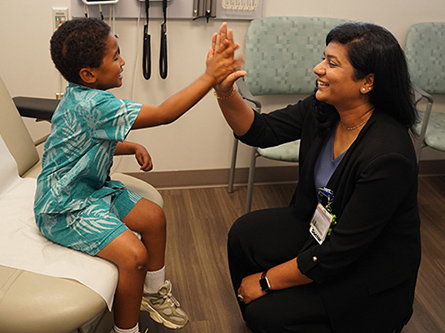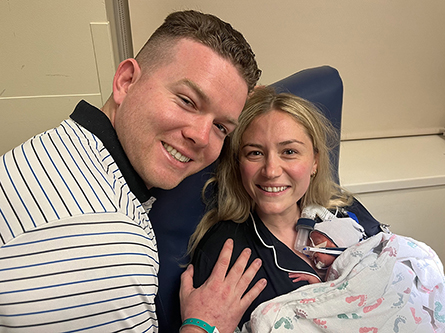Adam’s IBD was initially managed by diet and medication, allowing him to get back to living a normal life. He was his happy, quick-witted self. But the disease slowly advanced. It wasn’t until several years later when Adam was 8 that it got so bad he was incapacitated.

“He had been pushing through his symptoms but finally said, ‘Mommy. I just want to lay down,’ Adam’s mother Kelly Zehnder-Olson recalled. “Adam was so pale. He finally told me he had blood in his stool again, so I called Dr. Say and she told me to bring him to the UC Davis Pediatric Emergency Department.”
Adam was hospitalized, even requiring a blood transfusion.
“This disease can be quite sneaky. It is not acutely worse right away,” Say said. “We had to stabilize Adam and then reassess. We knew we had to escalate therapy.”
Enter the Acute Infection Management (AIM) clinic, which provides outpatient therapies for patients diagnosed with acute infections and chronic conditions. AIM patients generally require intravenous (IV) infusion, but do not require around-the-clock nursing services in the hospital. At the time of Adam’s diagnosis or treatment, all the other patients were adults.

Since IV medicines are often more effective for treating chronic conditions like Adam’s, Dr. Say presented the AIM Clinic as an option to the Olson family. He would be the first pediatric patient.
“UC Davis Health is so fortunate to have AIM services to offer pediatric patients with chronic gastrointestinal conditions,” Say said. “As new treatments are introduced, the clinic helps coordinate care across the hospital so we can provide the best possible medical outcome for our patients, including kids like Adam.”





